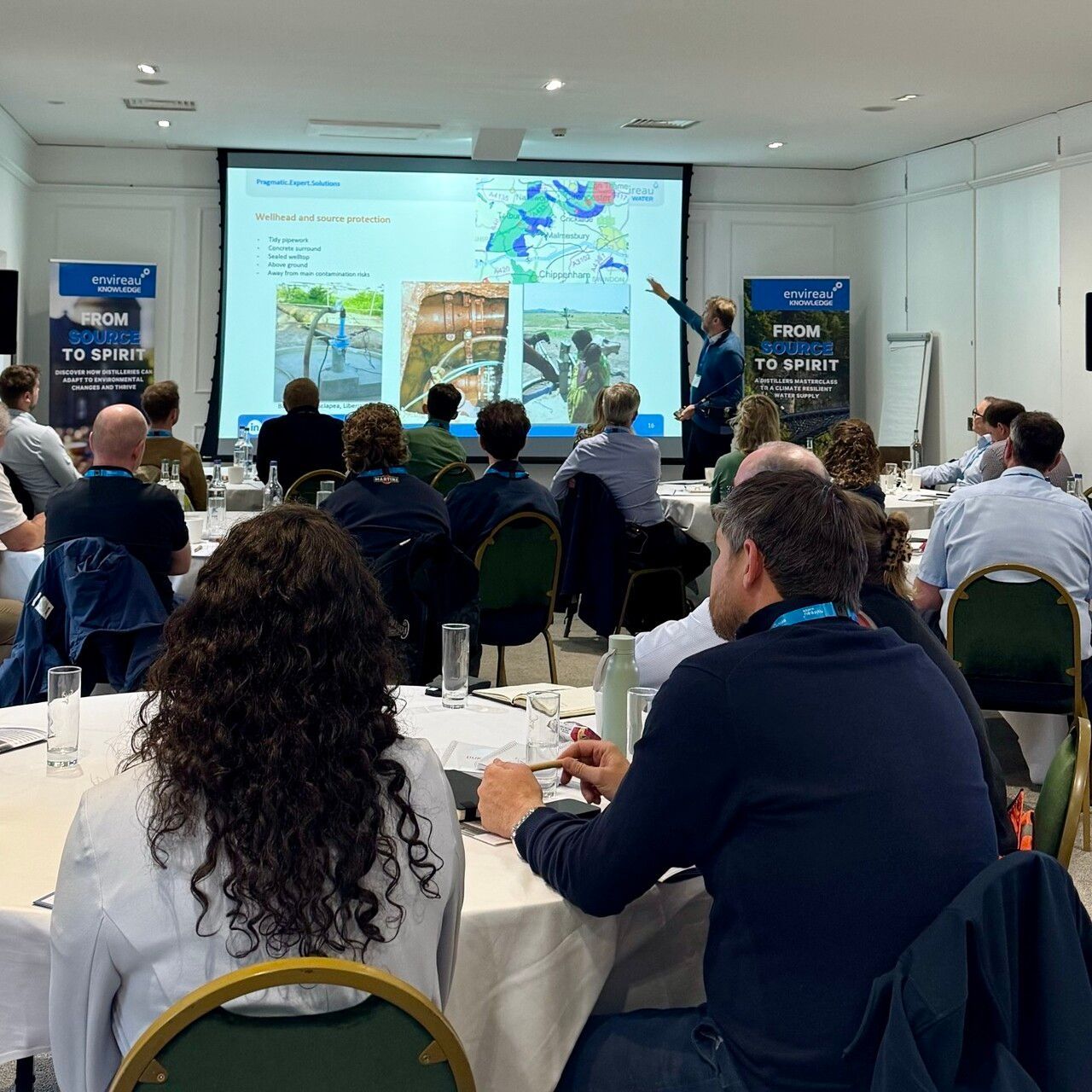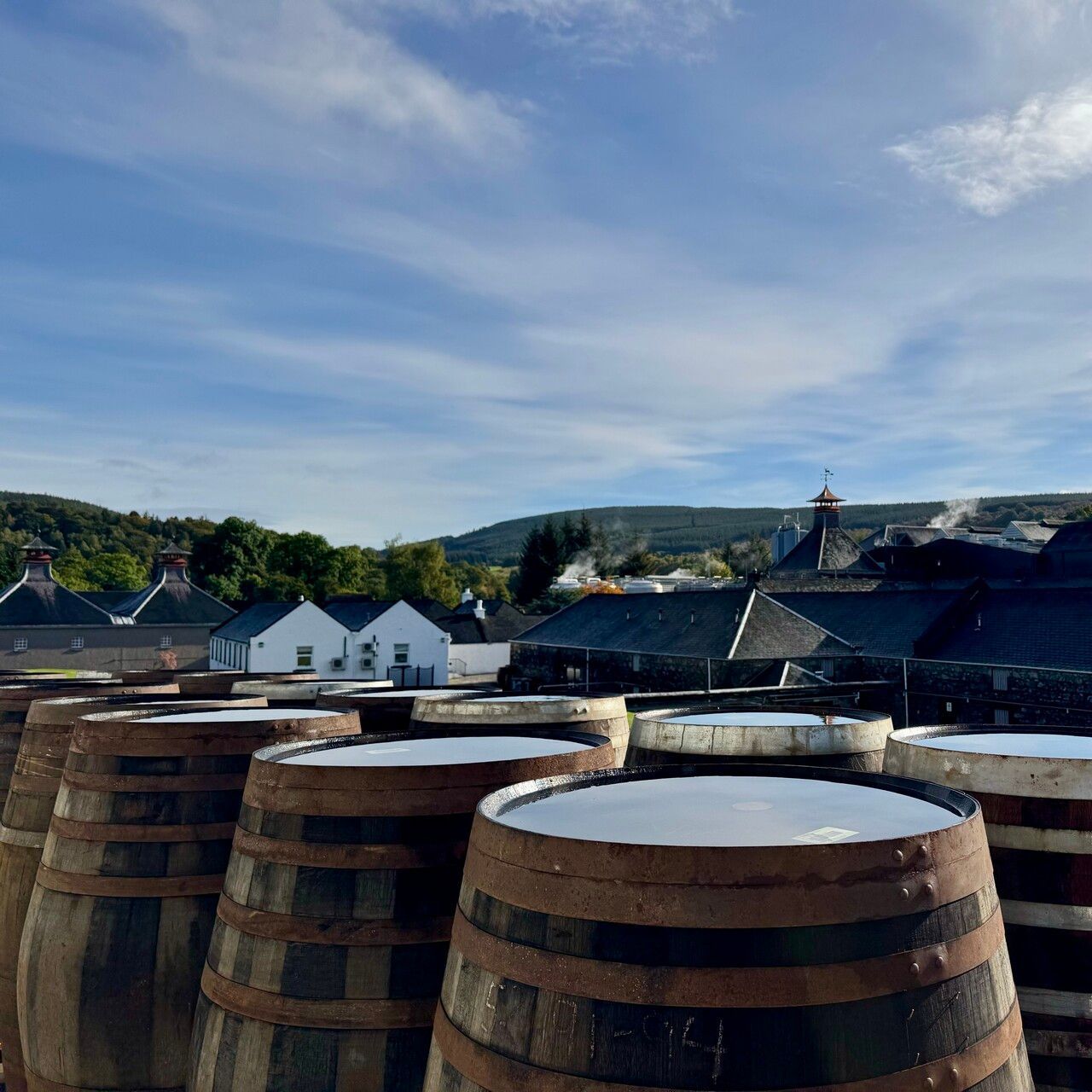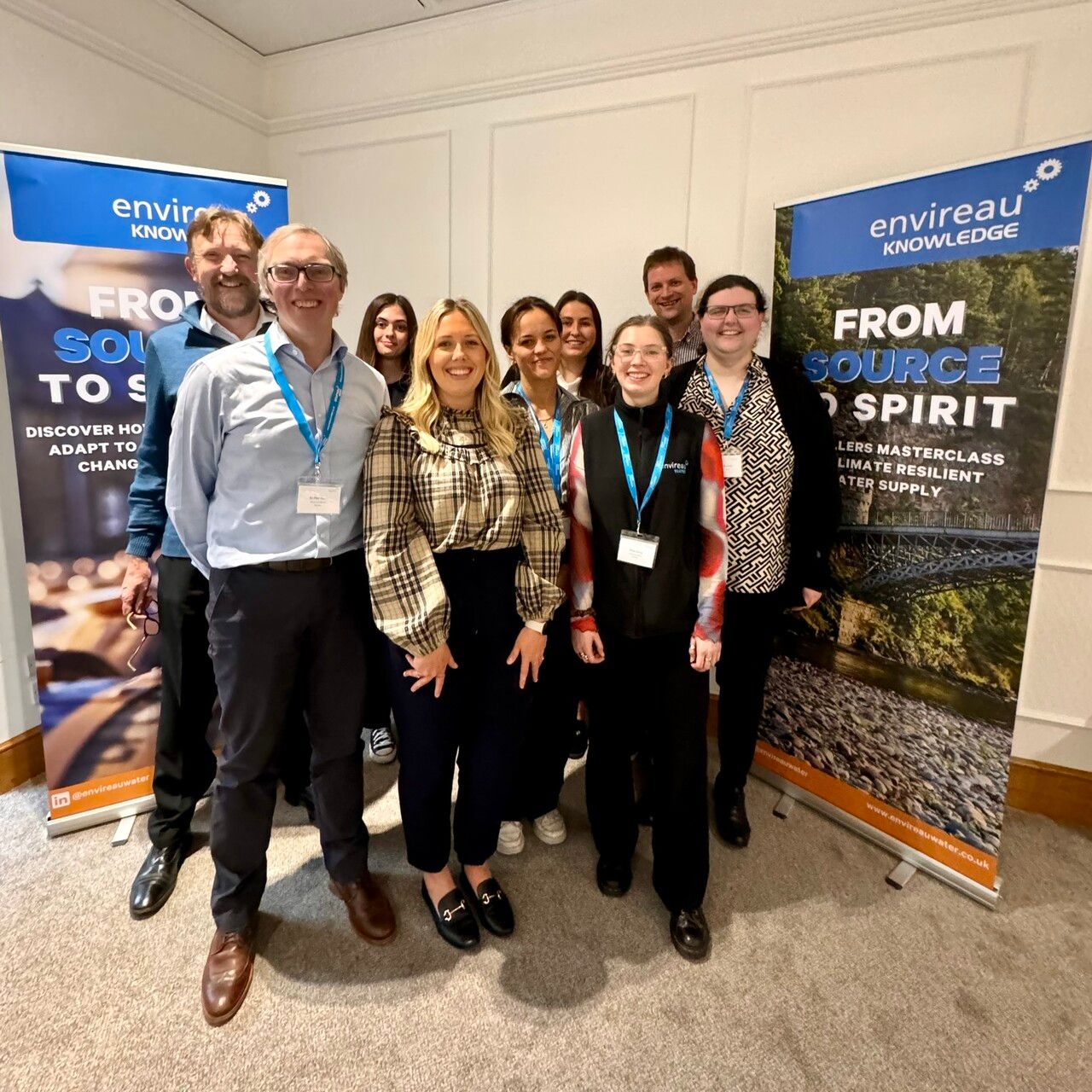Reflecting on 'From Source To Spirit' 2024!

On the 24th of September, members of the Envireau Water team had the pleasure of hosting our first distilling and malting pop-up event, From Source to Spirit: A Distillers Masterclass to a Climate Resilient Water Supply at the prestigious Glenfiddich Distillery in Dufftown, Moray.
The event was chaired by our Managing Director, Dr.
Phil Ham, who is responsible for the delivery of Envireau Water's water supply projects and has been working closely with the distilling and malting industries for the last 15 years.
We caught up with Phil after the event to see what he thought about the day...
Phil, what was so special about this year's Envireau Knowledge event?
This is the first event that where we have focussed exclusively on the distilling and malting industry.
The day was buzzing from start to finish, bringing together industry professionals and expert speakers to invest in a day of knowledge and discussion on how to combat the effects of climate change, maximise water resources, and develop solutions to ensure the long-term sustainability and operational resilience of distilleries and maltings across Scotland's five whisky regions.
By the end of the day, there was a shared understanding that swift action is needed to create a climate-resilient water supply, whether this be through better management and engineering of existing water sources and infrastructure, developing new groundwater sources, or looking beyond site boundaries and supporting collaborative initiatives to improve water management at a catchment scale.
What was clear is that change needs to happen at all scales, and the shared acknowledgement and engagement on such a crucial topic is what made #STS24 really special.
How did the morning presentations shape the discussions around water resilience?
The content and structure of the day were carefully thought out to ensure our delegates received the best advice and knowledge to help them with their own challenges.
Dr. Lee Oliver, Head of Sustainability at The Woodland Trust, opened the conference with an insightful talk on climate resilience, emphasising the unpredictability of such events and the associated vulnerability of water supplies. Lee emphasised how we can rise to the challenges by adopting a risk-based approach, focusing investment where risk is greatest and utilising both technical and nature-based solutions to achieve multiple benefits.
Anna Graham, Head of Environment, Science & Innovation at the Scotch Whisky Association, echoed Lee’s points, stressing the ongoing impact of climate change on water consistency and quality. She also noted the pressures from industry growth and shared how regulators like SEPA and the Scottish Government are working on resource planning to ease future challenges. Anna also highlighted the importance of water stewardship to achieve catchment-wide improvements and protect our water supplies for future generations.
Dave Banks, one of our Principal Hydrogeologists, and Duncan Pirie, Environment Co-ordinator at Diageo, followed delivered insightful talks on how to better understand and maximise water supplies. Dave and Duncan discussed the need for effective management of boreholes, springs, and wells to ensure their longevity and prevent contamination, while emphasising the integration of engineering with nature-based solutions and water stewardship for enhanced water efficiency and biodiversity.
Ronald Daalmans, Sustainability Director at Chivas Bros, and Chris Woodhouse, Principal Hydrogeologist at Envireau Water, wrapped up the morning by discussing future-proofing the Scotch Whisky sector. Ronald introduced a case study form Glenlivet, where nature-based solutions are being used to enhance water resilience in the water source catchment. Chris summed up the sector's key technical and regulatory challenges, particularly focusing on the vulnerabilities linked to water supplies and the importance of good data collection and monitoring to inform decision making.
What was covered in the afternoon sessions?
The afternoon sessions were more applied, using case studies and props to illustrate the importance of effective water management, whilst also demonstrating how we can reduce our carbon footprint, costs, and energy consumption simultaneously.
Shona Symon, Senior Hydrogeologist at Envireau Water, and Archie Grant, Chemical Engineer at William Grant & Sons, kicked off the afternoon with a practical discussion of the critical role borehole supplies play in William Grant's distilling operations at Glenfiddich. Shona expertly highlighted her experience working with the distillery to enhance their water supplies, from the initial design, drilling, and final testing of boreholes, as well as the practical and regulatory implications considered.
To end what can only be described as a fascinating afternoon, John Calder, Technical Director at Dura Pump, and Katy Irving, Hydrogeologist at Envireau Water, concluded with a compelling talk, offering insights on sustainability and guidance on optimising water supply pumping systems to achieve long-term energy, cost, and carbon savings. This was illustrated by a case study from Cameronbridge Distillery, where a review of energy use from a 5 borehole wellfield has delivered instantaneous energy and cost savings in excess of 20%.
What were your key takeaways from both sessions?
A wealth of fascinating knowledge and insights were shared throughout the day.
It was clear to everyone in attendance that climate change poses a significant threat, particularly with rising temperatures and increased periods of water scarcity expected in Scotland's whisky regions. This makes it more important than ever to implement changes swiftly.
There was a lot of discussion about practical, engineering based solutions that build resilience at a local scale; however, one recurring theme in the discussions was the necessity to work with nature and adopt a water stewardship approach to combat the worst effects of climate change. Fostering collaborative partnerships and harnessing natural processes offers long-term solutions for distilleries to more effectively manage water resources, enhance security and sustainability while also delivering added environmental, social, and economic benefits.
I think it's also important to reinforce that building climate resilience isn't just a problem that the distilling industry needs to address. The existing regulatory framework also needs to adapt and become less rigid to ensure that regulatory responses properly balance the needs of industry and the environment.
Can you give us a glimpse of what next year might hold?
I imagine this won't be the last knowledge event we host for this industry.
I am certainly pleased to announce that our Borehole Users Conference will return in 2025, so watch this space!
Otherwise, we want to thank all of our speakers and delegates for helping make Source to Spirit a great success. We hope to see you at #BHUC2025!











